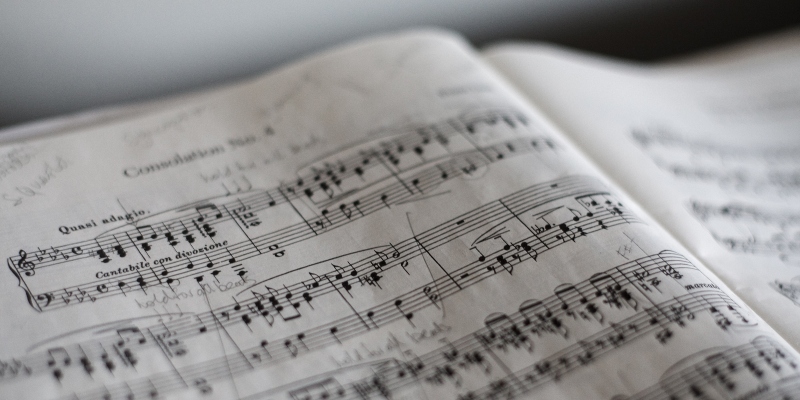
Reading Finnegans Wake Musically Might Help Make Sense of It
This Week on Finnegan and Friends, a Podcast About the Most Mystifying Book Ever Written
Welcome to Finnegan and Friends, a new five-part series about the most mystifying book ever written: James Joyce’s Finnegans Wake. With a range of guests—including a novelist, an actor, a sleep specialist, a philosopher, and several Joyce scholars—Finnegan and Friends follows tangents inspired by Joyce’s novel of dreamy strangeness. We discover, along the way, that the Wake’s infinite complexity comes from attention to our most simple, elemental experiences (of dreams, of water, of local and familiar language). This show celebrates the wonders of the basic stuff of life.
Some of Finnegans Wake’s canniest readers, like guest Olwen Fouéré, don’t read the whole thing. That makes sense, too, considering that the book is itself incomplete: the last line doesn’t end, has no period. You’re left with a book that cannot conclude itself, that avoids coherence. So what are all these words doing, if not communicating? In part, they’re making music. They’re an experiment with language’s sounds.
Joyce obsessed over such sounds, including the sound linkages that connect meanings in ways impossible to track consistently. The scholar Joseph Nugent says in this episode, “Joyce does things very frequently for the fun of it, or because of some coincidence that was inside his own head that the rest of us have no access to whatsoever. We give up after a while imagining that we’re going to make entire sense of this book.”
Some of the sound connections are easier to make than others, especially when we think of the book’s music. The book alludes often to the song “Finnegan’s Wake,” but it also echoes the song about poor old Michael Finnegan, which has lyrics—“poor old Michael Finnegan, begin again”—about restarting.
When you read the book with songs in mind, you can end up noticing glorious constellations that scholars have catalogued for decades. Consider the closing lines, with their patterns of iambs and rhyme and alliteration, their music that carries you along with the rising and falling of waves:
We pass through grass behush the bush to. Whish! A gull. Gulls. Far calls. Coming, far! End here. Us then. Finn, again! Take. Bussoftlhee, mememormee! Till thousandsthee. Lps. The keys to. Given! A way a lone a last a loved a long the
You, reader or listener, have to figure out where you go from here. But the Wake gives you rhythms and sensations to encourage those next steps.
__________________________________
Subscribe, listen, and enjoy the engaging interviews as we bring you Finnegan and Friends. Episodes will begin running weekly throughout April, and will be available for free on Apple Podcasts, Spotify, Stitcher, PocketCasts, or wherever you listen to podcasts.
Olwen Fouéré is an actor and director. She’s in films such as Mandy, and in riverrun, she adapted Finnegans Wake for the stage.
Joseph Nugent is a professor at Boston College and impresario behind “Zoomin the Wake,” a Finnegans Wake reading group.
Host Adam Colman is a writer and radio producer in Massachusetts. He’s the author of New Uses for Failure and Drugs and the Addiction Aesthetic in Nineteenth-Century Literature, and he’s written for the Believer, Pittsburgh City Paper, and more. In podcasting and radio: he’s made episodes for KCRW and McSweeney’s Organist, and he’s a producer for Open Source, on WBUR in Boston.
The Cosmic Library
The Cosmic Library explores massive books in order to explore everything else. Here, books that can seem overwhelming—books of dreams, infinity, mysteries—turn out to be intensely accessible, offering so many different ways to read them and think with them.



















